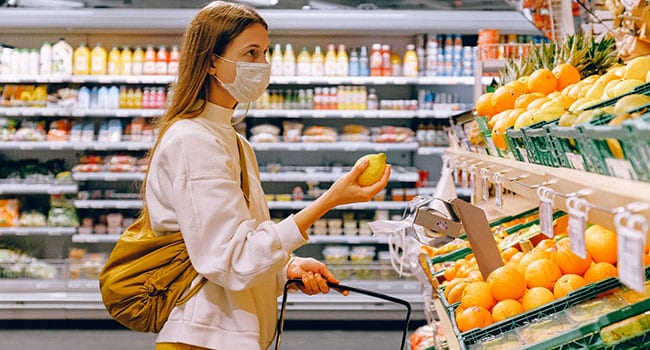 The year 2020 was as unusual as they get, with no shortage of stories. Some flew under the radar because of the pandemic but this list is based on how some food-related stories will probably have long-term implications, whether they were related to COVID-19 or not.
The year 2020 was as unusual as they get, with no shortage of stories. Some flew under the radar because of the pandemic but this list is based on how some food-related stories will probably have long-term implications, whether they were related to COVID-19 or not.
At No. 10, the apparent end of Tim Hortons’ identity crisis.
For a few years, the iconic Canadian chain had clearly lost its bearings. The restaurant chain still has a long way to go, but 2020 may have been the first year of a turnaround story.
Alex Macedo, the former president, left in March with barely anyone noticing.
For years, the company’s marketing and product development groups were simply out of touch with what was happening out in the field and in stores. But that changed this year. Should be interesting how things unfold in a hopefully calmer 2021.
At No. 9, Singapore became the first country to allow lab-grown meat to be commercialized.
This may seem like a far-fetched idea right now for Canadians, but it’s likely just a matter of time before these products come to Canada. How they will be regulated is still a mystery.
But the cost to produce synthetic meat in labs now is probably lower than doing it conventionally, and without the slaughter and the massive environmental footprint. This is going to pose a challenge for the livestock industry.
At No. 8, the hero pay debacle in the spring wasn’t handled well by grocers.
Increasing wages early in the year only to cancel those raises in June pointed to how ill-designed these programs were. Canadians came to realize that essential jobs in the food sector are occupied by under-appreciated, under-paid personnel.
But food retailing is all about high sales volumes with very low margins. A 10 per cent salary base increase will make many stores unprofitable. Recognizing the hard work of front-line employees is critical but it can’t be done permanently with current business models.
Sobeys, Walmart and other chains have opted to bring back “lockdown bonuses,” which was the appropriate language to use. A good comeback.
At No. 7, the apparent divorce between McDonald’s and Beyond Meat, the darling of plant-based diets.
While McDonald’s recently announced its new McPlant products to be rolled out in 2021, Beyond Meat, which had been working with the fast-food chain for a while, wasn’t even mentioned in the release.
McDonald’s underscored its commitment to the fundamentals of agriculture and that’s a big deal for our farming community.
Beyond Meat learned the hard way that its “better than beef” rhetoric makes the company a liability. McDonald’s made that crystal clear this year.
At No. 6, the sudden rise of e-commerce in the food industry.
Online shopping has made the entire supply chain more democratic and accessible to consumers. Everyone can sell to consumers now, including farmers, processors and farmers’ markets.
In 2020, we’ve seen the food industry commit to the incredible sum of more than $12 billion in investments over five years to support online strategies.
When the year started, barely 1.7 per cent of food sales in Canada were conducted online. By the time we’ve finished with 2020, that number will have more than doubled – and almost half of Canadians intend to buy food online regularly after the pandemic.
At No. 5, the collapse of the food service industry and consequent pivoting due to successive lockdowns was extremely painful to watch.
We started the year spending about 36 per cent of our food budget on food consumed outside the home. In April, that percentage went down to nine per cent. By mid-summer, it went back up to about 25 or 26 per cent.
But most restaurant operators are realistic. It won’t go back up to 26 per cent anytime soon.
At No. 4, farmgate waste.
Because of disruptions created by the pandemic, millions of litres of milk were dumped, millions of perfectly healthy farm animals were euthanized across the country, and lettuce and mushrooms were disposed of due to lack of labour.
The waste was unbearable and incomprehensible. Most Canadians were confused and had no idea what to think of the waste.
Farmers weren’t to blame but our lack of focus on processing as a country was. Because of what happened this year, as the social contract between the food industry and consumers is being redesigned, farmers need to be ready.
At No. 3, telecommuting, cooking, gardening and how we became more domesticated as a society.
Getting people to stay home created a tsunami of changes. Working from home got us closer to our own kitchens, which in turn changed our relationship with food. Most of us cooked and almost 20 per cent of Canadians started a garden this year.
Many got to experience life without restaurants, if only for a while.
Only time will tell if our new habits stick.
At No. 2, amid the massive Black Lives Matter movement ignited by George Floyd’s dreadful death, PepsiCo changed the name and brand image of its Aunt Jemima pancake mix and syrup.
Other food companies followed suit during the summer. As in many other sectors, food marketing clearly ended a racist-charged chapter in 2020 and how food will be marketed will change.
And at No. 1, the sudden and unnecessary panic buying of food during the first wave of the pandemic in the spring is an easy pick for the top spot.
Beyond the ridiculousness of toilet paper hoarding, the impact of empty shelves was immense. Many Canadians would have experienced the emotions of food insecurity for the first time. Since then, behaviours and policy have been impacted by the powerful images of bare grocery store shelves.
It was truly a moment in time.
It’s always difficult to make such a list, and anyone can add to or remove any of these stories. But this year’s list was one of the easiest to write in decades.
Happy Holidays.
Dr. Sylvain Charlebois is senior director of the agri-food analytics lab and a professor in food distribution and policy at Dalhousie University.
Sylvain is a Troy Media Thought Leader. Why aren’t you?
For interview requests, click here. You must be a Troy Media Marketplace media subscriber to access our Sourcebook.
The views, opinions and positions expressed by columnists and contributors are the author’s alone. They do not inherently or expressly reflect the views, opinions and/or positions of our publication.

